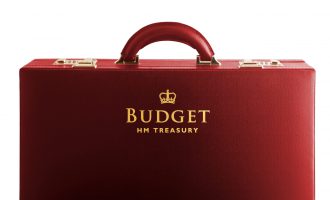Since 6 April 2016, banks and building societies must pay you your interest gross. This means that they do not deduct any income tax from it before you get it.
For a number of years this has meant very little to most taxpayers because their savings have either been held in an Individual Savings Account (ISA) or the taxable interest has been within their Personal Savings Allowance (£1,000 for a Basic Rate Taxpayer and £500 for a Higher Rate Taxpayer), or they have already been filing a Tax Return for other reasons.
With recent increases to bank and building society interest rates large numbers of taxpayers will now have an obligation to report the taxable interest to HMRC and pay over the income tax. For many, this may be the first time in their lives that they have had to file a Self-Assessment Tax Return and there is a perception (incorrectly) that HMRC will tell you when you need to file a Tax Return. At Scrutton Bland, we are seeing instances where for the first time bank and building society savings of as little as £25,000 are creating an obligation to file a Tax Return due to the interest being received.
The obligation rests with the taxpayer and there are fears amongst many in the tax profession that there will be substantial numbers of innocently unaware individuals who will only find out about these income tax liabilities when HMRC eventually catch up with the records of interest payments that are provided to them by the banks and building societies. This could lead to an income tax liability covering many years with the problem of HMRC interest and penalties to also contend with.
At Scrutton Bland our Private Client team help thousands of taxpayers meet their obligations each year and seek to add value to that process by getting to know clients and investing in technology to make the reporting process as efficient and smooth as possible.
Bank and building Society interest is one of many reasons why a Tax Return may need to be filed and HMRC state that you must submit a Self-Assessment Tax Return if you meet any of the following criteria:
- You were self-employed as a ‘sole trader’ and earned more than £1,000 (before taking off anything you can claim tax relief on)
- You were a partner in a business partnership
- You had a total taxable income of more than £150,000
- You received more than £10,000 from dividends or savings and investments
- You had to pay Capital Gains Tax when you sold or ‘disposed of’ something that increased in value
- You had to pay the High Income Child Benefit Charge
With access to markets digitally numerous individuals are earning income from multiple sources (often referred to as a “Side Hustle”) and the obligation to report this to HMRC and pay over any tax rests with the individual unless it is not taxable by reason of the modest allowances available.
HMRC also notes that you may have to send a Tax return if you have any untaxed income such as:
- Money from renting out a property
- Tips and commission
- Income from savings, investments and dividends
- Foreign income
- Trust income
Whilst you may not have met any of the above criteria it is possible that you have received other income in which an additional tax liability is incurred and it is your responsibility to report this to HMRC.
If you would like some advice about filing your Self-Assessment Tax Return, reach out to our Private Client Team who can help you to understand your obligations as a taxpayer. The team can also spend time getting to know you and your family as part of the annual Tax Return process to assist you to plan your affairs to optimise your tax position to help you plan for the future. Reach out to Graham Doubtfire by calling 0330 058 6559 or emailing hello@scruttonbland.co.uk.







